The VA home loan program allows eligible military members and veterans to buy a home with no down payment.
But that’s not the only way to achieve the dream of homeownership. Borrowers can also use a VA loan to build a house from scratch, which offers its own unique set of benefits.
This guide explains how VA construction loans work, what benefits they provide, and the steps you would need to take to obtain this kind of financing.

What Is a VA Construction Loan?
If you’ve heard of the VA loan program, you’re probably already familiar with the VA loan process and some of its significant benefits. For instance, this program allows eligible home buyers to finance 100% of the purchase price without any extra mortgage insurance tacked on.
However, many veterans and military members don’t realize they can use a VA loan to build a home of their own. This option allows one to choose the exact layout and features you want in a house rather than buying an existing home that might only come close.
Definition: A VA construction loan is a special type of home loan that’s backed by the U.S. Department of Veterans Affairs. It allows eligible veterans and service members to finance the construction of a new home.
With a VA construction loan, you can build on land you already own or purchase and finance the construction as one package. It’s a flexible financing program.

Buying Land with a VA Loan?
A common question among veterans and military members is can you buy land with a VA loan? The answer is yes, but only under certain conditions.
The VA construction loan program allows eligible borrowers to finance the purchase of land and the construction of a new home on that land. This can be done as part of a single loan package, offering a streamlined and flexible financing option.
So, if you’re considering purchasing land for your new home, a VA loan for land may be an option worth exploring.
However, it’s important to note that the VA does not typically allow loans solely to purchase undeveloped land without a construction plan. The main objective of the VA loan program is to help veterans and service members secure housing, so the land purchase must be tied to a construction project.
Benefits of Including Land in Your VA Construction Loan:
- Single Loan Package: By financing the land purchase and home construction together, you simplify the process and deal with one loan, one closing, and one set of fees.
- No Down Payment: Similar to VA purchase loans, VA construction loans usually do not require a down payment, making it easier to get started.
- Potentially Lower Interest Rates: Since VA loans are backed by the federal government, they often come with lower interest rates in comparison to conventional loans.
- Customizable Home: Purchasing land and buildings allows you to create a home that perfectly fits your preferences and needs rather than settling for an existing structure.
To utilize this benefit, you’ll need to work with an experienced lender in VA construction loans. They will guide you through the process, from eligibility verification to the final closing.
The Benefits for Borrowers
VA construction loans provide a number of benefits for borrowers. Here are some of the main advantages for military members and veterans who want to build their own homes.
- No down payment required: Unlike traditional construction loan requirements, VA construction loans typically do not require a down payment. This removes one of the biggest hurdles to homeownership.
- No mortgage insurance: VA construction loans do not require mortgage insurance, even if you don’t make a down payment. In contrast, conventional loans with low down payments almost always require private mortgage insurance, which adds an extra cost burden.
- Potentially lower rates: VA construction loans offer lower interest rates than traditional construction loans. That’s because they are backed by the federal government, which reduces risk for lenders.
- Delayed payments: You don’t have to make payments on the principal until after construction is complete.
That last point is essential, so let’s expand on it. Here’s how the Department of Veterans Affairs explains the payment process in its official guide for home buyers:
“You don’t have to pay for your home loan until after construction is complete. The initial payment on the principal may be postponed up to 1 year. For example, if you have a 30-year mortgage and construction takes 6 months to complete, then you must repay your loan in 29 years and 6 months.”

Who Offers VA Construction Loans?
Choosing the right lender for your VA construction loan is essential to ensure a smooth and successful home-building process. While many financial institutions offer standard VA purchase loans, not all of them provide VA construction loans. It’s essential to work with a lender who is experienced in handling the complexities of construction financing and who offers VA construction loans.
Here are some key points to consider when searching for a lender:
- Specialization in VA Construction Loans: Look for lenders who specialize in VA construction loans. These lenders deeply understand the VA loan program and its unique requirements for financing new construction.
- Experience and Expertise: Choose a lender with a proven track record of successfully funding VA construction projects. A lender can guide you through the process, answer your queries, and address any concerns that can arise.
- Transparent Communication: Opt for a lender who communicates openly and transparently throughout the loan process. Transparent and effective communication is essential for keeping you informed about the progress of your loan and addressing any issues promptly.
- Competitive Terms and Rates: Compare terms and rates offered by different lenders to make sure you’re getting the most competitive financing options available. While VA construction loans typically offer favorable terms, shopping around and finding the best deal for your specific needs is essential.
- Customer Reviews and Testimonials: Take your time to read customer feedback to gauge the satisfaction levels of past clients. Positive feedback from satisfied borrowers can give you confidence in your lender choice.
- Accessibility and Support: Consider the accessibility and support provided by the lender. A responsive and supportive lender can make the loan process less stressful and more manageable, especially during the construction phase.
By selecting a lender who offers VA construction loans and meets these criteria, you can streamline the financing process and increase the chances of a successful home-building experience.

How the Construction Loan Process Works
The process can vary depending on your VA construction loan type. There are two main types, and they differ mainly in how the closing process is handled.
One-time close (or single close): This is the most common type. With the one-time close option, you close on both the construction loan as well as the permanent mortgage simultaneously. The permanent financing terms are finalized after construction is complete.
Two-time close: With a two-time close loan, there are two separate closings. The first closing is for the construction loan, and the second closing is for the permanent mortgage.
Here’s a general overview of the process for both types of loans:
- Eligibility and entitlement verification: The lender will verify your eligibility for a VA loan and your VA entitlement to use your VA loan benefit. This program is available to military members and veterans who meet specific time-in-service requirements.
- Appraisal: The lender will request an appraisal of the property based on the plans and specifications for the home.
- Notice of Value (NOV): The VA will issue a Notice of Value (NOV) to you and your lender.
- Loan closing: You will close on the loan and pay any applicable fees.
- Construction: The builder will start the construction on your home.
- Inspections: The VA will conduct inspections throughout the construction process.
- Loan modification (one-time close only): Once construction is complete, the lender will modify your loan to the permanent mortgage terms.
- Second closing (two-time close only): If you have a two-time close loan, you will close on the permanent mortgage.
Some Other Things You Need to Know
While most banks and mortgage lenders offer standard VA purchase loans, not all offer the construction loan option.
One of your first steps will be to find VA construction loan lenders who are experienced with VA construction loans since they have unique requirements and procedures. Additionally, if you’re considering renovations on an existing home, you should be aware of VA home improvement loan requirements, as they differ from those of construction loans.
The construction loan process can be more complex than a typical home purchase (where there’s an existing property). It typically takes longer than a traditional home loan. So make sure you understand the estimated timeline and are willing to accept it.
You might have to pay a funding fee for your closing costs. Almost all borrowers who use this program have to pay a one-time funding fee, whether purchasing an existing home or building a new one. However, certain veterans are exempt from this fee.
A VA construction loan can be an excellent way for veterans and service members to finance the building of their dream homes with the benefits of potentially lower interest rates, no down payment, and no PMI. If you’re eligible for a VA loan and considering building a new home, this program is worth exploring.



 How to Buy a Condo Unit with a VA Mortgage Loan
How to Buy a Condo Unit with a VA Mortgage Loan 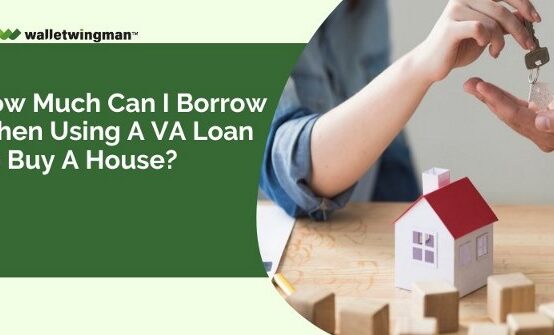 How Much Can I Borrow When Using a VA Loan to Buy a House?
How Much Can I Borrow When Using a VA Loan to Buy a House? 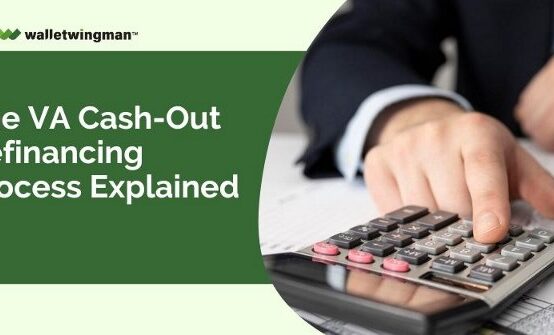 The VA Cash-Out Refinancing Process Explained
The VA Cash-Out Refinancing Process Explained 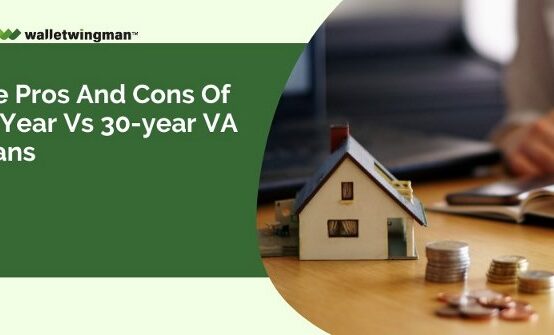 The Pros and Cons of 15-Year vs 30-year VA loans
The Pros and Cons of 15-Year vs 30-year VA loans 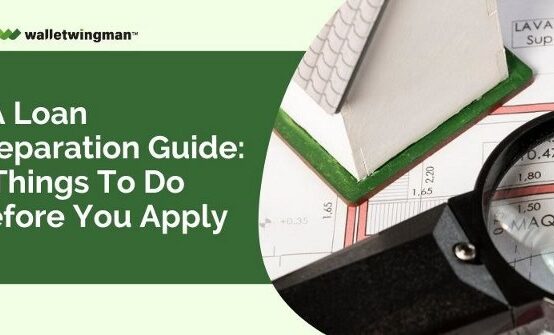 VA Loan Preparation Guide: 7 Things to Do Before You Apply
VA Loan Preparation Guide: 7 Things to Do Before You Apply 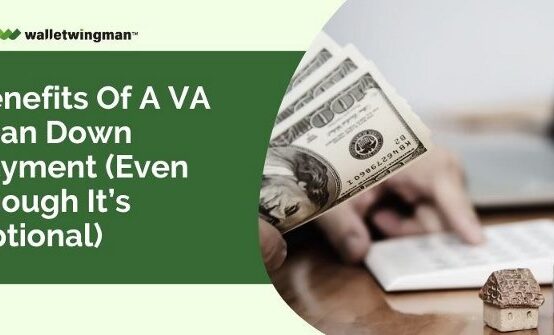 Benefits of a VA Loan Down Payment (Even Though It’s Optional)
Benefits of a VA Loan Down Payment (Even Though It’s Optional) 